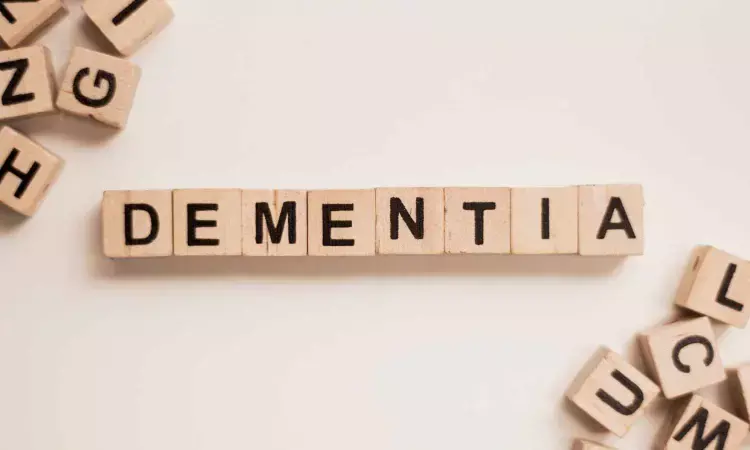- Home
- Medical news & Guidelines
- Anesthesiology
- Cardiology and CTVS
- Critical Care
- Dentistry
- Dermatology
- Diabetes and Endocrinology
- ENT
- Gastroenterology
- Medicine
- Nephrology
- Neurology
- Obstretics-Gynaecology
- Oncology
- Ophthalmology
- Orthopaedics
- Pediatrics-Neonatology
- Psychiatry
- Pulmonology
- Radiology
- Surgery
- Urology
- Laboratory Medicine
- Diet
- Nursing
- Paramedical
- Physiotherapy
- Health news
- Fact Check
- Bone Health Fact Check
- Brain Health Fact Check
- Cancer Related Fact Check
- Child Care Fact Check
- Dental and oral health fact check
- Diabetes and metabolic health fact check
- Diet and Nutrition Fact Check
- Eye and ENT Care Fact Check
- Fitness fact check
- Gut health fact check
- Heart health fact check
- Kidney health fact check
- Medical education fact check
- Men's health fact check
- Respiratory fact check
- Skin and hair care fact check
- Vaccine and Immunization fact check
- Women's health fact check
- AYUSH
- State News
- Andaman and Nicobar Islands
- Andhra Pradesh
- Arunachal Pradesh
- Assam
- Bihar
- Chandigarh
- Chattisgarh
- Dadra and Nagar Haveli
- Daman and Diu
- Delhi
- Goa
- Gujarat
- Haryana
- Himachal Pradesh
- Jammu & Kashmir
- Jharkhand
- Karnataka
- Kerala
- Ladakh
- Lakshadweep
- Madhya Pradesh
- Maharashtra
- Manipur
- Meghalaya
- Mizoram
- Nagaland
- Odisha
- Puducherry
- Punjab
- Rajasthan
- Sikkim
- Tamil Nadu
- Telangana
- Tripura
- Uttar Pradesh
- Uttrakhand
- West Bengal
- Medical Education
- Industry
Pre-existing mental health conditions increase the risk of Vascular dementia post COVID-19 infection: Study

A new study published in the Nature Partner Journal Dementia showed that COVID-19 survivors 50 years of age and older were more likely to experience new-onset dementia (NOD) when compared to uninfected controls.
According to current research, persons 50 years of age and older who are recuperating from COVID-19 may be more susceptible to new-onset vascular dementia. Vascular cognitive loss may result from the infection's prothrombotic effects, endothelial damage, and systemic inflammation, which can reduce cerebral blood flow.
This risk may also be increased by post-COVID metabolic abnormalities and pre-existing comorbidities. Early identification, prevention, and therapy of cognitive impairment in the elderly population after infection depend on an understanding of the pathways relating COVID-19 to vascular dementia. Thus, the purpose of this work was to use secondary data analysis of the UK Biobank (UKBB) public dataset to do a longitudinal cohort study.
The prevalences of both non-COVID respiratory illnesses (including both non-communicable respiratory conditions and non-COVID respiratory tract infections) and dementia (including all-cause dementia, AD, and VaD) in these individuals were compared to those in propensity-score-matched controls who did not have COVID-19.
The findings of this research discovered that, in comparison to uninfected controls, COVID-19 survivors were more likely to develop NOD. VaD was the main cause of this elevated risk rather than AD, although the risk was not higher than that seen in those with respiratory conditions other than COVID. Significantly greater odds of VaD after COVID-19 infection were observed in those with pre-existing mental health disorders, making them more vulnerable.
Overall, all things considered, this study added to the increasing amount of data that suggests COVID-19 infection may raise the risk of NOD, especially VaD, but not AD. A wider influence of respiratory disorders on cognitive health may be indicated by the fact that this additional risk did not seem to be much greater than that seen in those with non-COVID respiratory diseases, including non-COVID respiratory tract infections. Research on the long-term cognitive effects of COVID-19 and ongoing surveillance are essential given the significant societal burden of dementia.
Reference:
Shan, D., Xu, Y., Yang, C., Crawford, T. J., & Holland, C. (2025). COVID-19 infection associated with increased risk of new-onset vascular dementia in adults ≥50 years. NPJ Dementia, 1(1). https://doi.org/10.1038/s44400-025-00034-y
Neuroscience Masters graduate
Jacinthlyn Sylvia, a Neuroscience Master's graduate from Chennai has worked extensively in deciphering the neurobiology of cognition and motor control in aging. She also has spread-out exposure to Neurosurgery from her Bachelor’s. She is currently involved in active Neuro-Oncology research. She is an upcoming neuroscientist with a fiery passion for writing. Her news cover at Medical Dialogues feature recent discoveries and updates from the healthcare and biomedical research fields. She can be reached at editorial@medicaldialogues.in
Dr Kamal Kant Kohli-MBBS, DTCD- a chest specialist with more than 30 years of practice and a flair for writing clinical articles, Dr Kamal Kant Kohli joined Medical Dialogues as a Chief Editor of Medical News. Besides writing articles, as an editor, he proofreads and verifies all the medical content published on Medical Dialogues including those coming from journals, studies,medical conferences,guidelines etc. Email: drkohli@medicaldialogues.in. Contact no. 011-43720751


